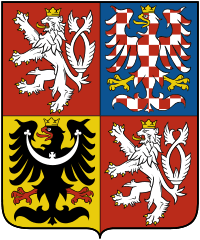Questions and Answers

Published
Updated 12-8-2021
- Update
- complete update
1. What are the EEA and Norway Grants?
Through the EEA and Norway Grants, Iceland, Liechtenstein and Norway contribute to reducing economic and social disparities in the European Economic Area (EEA) and to strengthening cooperation with the 15 countries of the European Union. The countries of Central, Eastern and Southern Europe, including the Czech Republic, are the beneficiaries of the financial support.
2. How long have the EEA and Norway Grants been operating in the Czech Republic?
The first period started with the accession of the Czech Republic to the EU in 2004. In the 14 years of the Grants' operation in the Czech Republic, over 1000 individual projects have been supported for a total amount of almost EUR 237 million.
3. What the last period 2009-2014 brought?
The second period was very successful in the Czech Republic. A total of €131.8 million was allocated to the Czech Republic in this period. Almost 100% of the funds earmarked for each project call were allocated to specific projects. 91% of the allocated funds were actually used. Projects were supported for the preservation of cultural monuments, the promotion of living arts, the protection of children at risk, health, the improvement of psychiatric care and student exchanges. Science and research, equal opportunities and Schengen cooperation are other areas supported in this period. You can see the projects implemented in the Project Map.
4. How is the current period of the Grants 2014-2021 and what is its focus?
The third period of the EEA and Norway Grants in the Czech Republic has already been officially launched by the signing of the Memorandum of Understanding on 4 September 2017 in Prague. The Czech Republic will receive EUR 184.5 million (approx. CZK 5 billion). Support will be provided to projects focusing mainly on science and research, environmental protection, cultural heritage, cultural cooperation, public health, education and judicial cooperation. There is a strong focus on human rights, Roma inclusion and the development of civil society. The new period also brings great opportunities for bilateral cooperation projects.
5. What is the status of the calls and where can I find the currently announced ones?
Most calls have already been launched and the receipt of grant applications has been closed. However, some programmes are yet to launch a call in the near future. You can check their current status on the Calls page.
6. What is meant by supporting bilateral cooperation?
Within the EEA and Norway Grants, the emphasis is on supporting and strengthening mutual relations between entities from the Czech Republic and donor states (Norway, Iceland, Liechtenstein). A special Fund for Bilateral Relations (allocation of EUR 3.69 million) was established to strengthen bilateral cooperation. The Fund builds on the previous period 2009-2014, in which a number of activities leading to the establishment of new partnerships or the strengthening of existing ones were implemented at national level thanks to support from a similar Fund for Bilateral Cooperation.
This Fund is one of the first instruments of the EEA and Norway Grants from which financial support was available in the new period. Support is provided for activities that contribute to the development of bilateral cooperation (e.g. seminars, working meetings, conferences, workshops, study trips, studies and data collection, information activities, etc.). Calls for the Bilateral Fund are announced on a rolling basis, for more information click here.
7. Is it necessary that the project is submitted in partnership with institutions from the donor country?
Bilateral cooperation is one of the important aspects of the EEA and Norway Grants. The obligation of a project partner from Norway, Iceland and/or Liechtenstein will always be specified in the call and may vary from programme to programme.
8. Why do European Free Trade Association (EFTA) countries contribute financially to the Czech Republic and other European countries?
The European Free Trade Association (EFTA) countries, namely Liechtenstein, Iceland and especially Norway, have an associated relationship with the European Union (EU) through the European Economic Area (EEA) Agreement and other treaties. In practice, this means that these countries are not EU member states, but have access to the European single market, essentially applying the EU's four fundamental freedoms (free movement of goods, persons, services and capital). At the same time, however, these countries reserve the right to protect their own interests, i.e. to adopt only limited parts of EU legislation into their legal systems. In return for this specific relationship with the EU and on the basis of contractual agreements with the EU, these countries have long contributed to the EEA Financial Mechanism (the so-called EEA Grants) and the separate Norwegian Financial Mechanism (the so-called Norway Grants), which are now used by a total of 15 EU Member States from Central, Eastern and Southern Europe.
9. Have any measures been taken as a result of the Covid 19 pandemic?
Unfortunately, the Covid 19 pandemic has also affected the implementation of the EEA and Norway Grants. Most of the meetings, committees and seminars have been moved to the virtual sphere. In order to mitigate possible complications resulting from government measures, call deadlines have been extended and advance payments in projects have been increased. Projects were allowed to postpone the project start date and extend the project implementation period (up to a maximum of 30 April 2024). In most programmes, projects were also allowed to use project funds to purchase equipment for the implementation of online activities (e.g. communication and transmission equipment, videoconferencing equipment) and the associated revision of the project budget.

